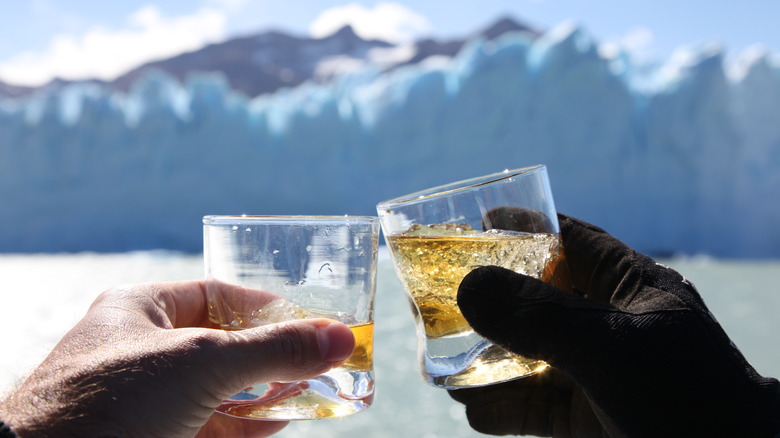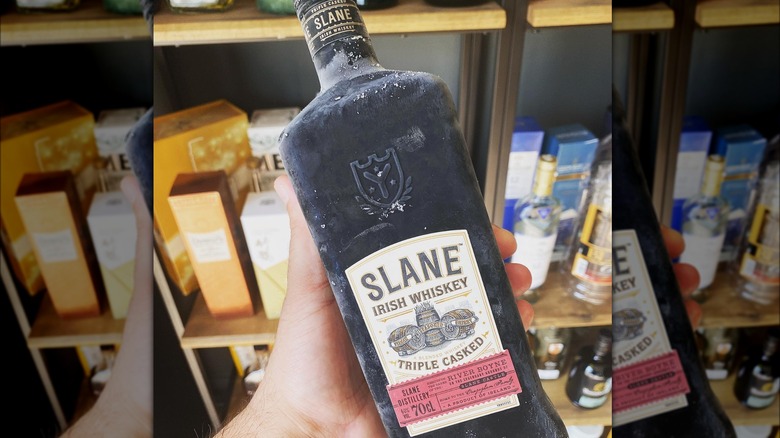Can Your Whiskey Really Get Too Cold?
When it comes to nuances of flavor and aroma, few spirits are as revered as whiskey (and whisky, without the "e") and with that come inevitable complexities of how best to enjoy those notes. If you're drinking whiskey as part of a mixed drink like a highball cocktail, the drink will most likely be frosty and chilled. However, when consuming your favorite dram neat or on the rocks, its temperature quickly becomes a crucial factor for how it might taste. Whiskey that's too cold or even slightly warm will have a skewed flavor profile in the sense that it won't taste exactly as the spirit's distiller intended. This isn't necessarily a bad thing depending on your personal tastes. Ultimately, the best way to drink whiskey or any other spirit is how you enjoy it most.
However, it's worth knowing the changes that occur in the spirit's flavor at different serving temperatures. If your aim is to experience the complete range of flavors and aromas in your whiskey, then you need to ensure it doesn't get too cold or else those unique flavors could be dulled. We chatted with the co-founders of Lodestar Whiskey, Anna Axster and Wendelin von Schroder, to see how they drink their whiskey and what one might be missing out on by drinking brown spirits too cold.
Chilling whiskey suppresses its subtle aromas and flavors
Whiskey at room temperature (about 60 degrees Fahrenheit) reveals its complex notes better than when it's cold. While this is great for getting to know whiskey's subtle flavors, it also means you the more powerful alcohol and oak notes may get overwhelming. Thus, chilling your whiskey slightly could make it taste better and go down more easily.
"We're all about whiskey neat or on the rocks — both bring out different sides of a whiskey," says Wendelin von Schroder. "Sipping it on the rocks (with ice) tempers the alcohol so the whiskey has less bite, and the melted ice (water) helps unlock more aromas and shifts the flavor. Chilling whiskey without ice won't soften the bite as much, but it does tone down the aromas."
While colder drinks tend to release fewer aromas, muting their flavor, this may be a good thing for new whiskey drinkers. As it turns out, lower temperatures may also be better suited to new or less-aged whiskeys. Barrel aging infuses notes of vanilla, caramel, and oak, which get suppressed when whiskey is too cold. Thus, an aged whiskey is better enjoyed closer to room temperature, while a younger expression can be chilled without losing too much of the flavor profile. If you'd like the best of both worlds, consider the unconventional but science-backed combination of whiskey and pickle juice, where you can have the spirit at room temperature, and alternate it with sips of chilled, briny pickle juice.

